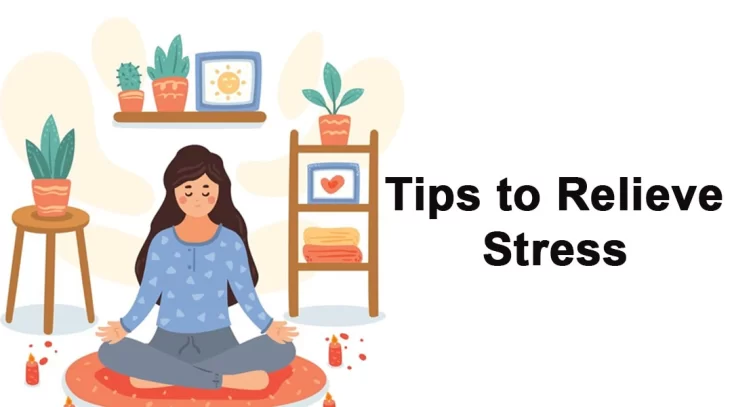What is stress management?
You might feel overwhelmed by stress as if there’s no solution in sight. The bills keep piling up, time feels scarce, and the demands from work and family seem never-ending. However, you have more control over stress than you realize.
Living with high levels of stress jeopardizes your overall well-being. It disrupts your emotional stability and takes a toll on your physical and mental health, impairing your ability to think clearly, function efficiently, and find joy in life.
Effective stress management empowers you to regain control over your life, leading to greater happiness, health, and productivity. The aim is to achieve a balanced lifestyle, incorporating time for work, relationships, relaxation, and enjoyment, while developing resilience to face challenges head-on. Since stress management varies for each individual, it’s essential to explore and discover what methods work best for you. The following tips to relieve stress offer guidance in this process.
Recognize the Signs of Stress: The first step in managing stress is recognizing when it’s affecting you. Common signs of stress include irritability, fatigue, headaches, muscle tension, and changes in sleep or appetite. By paying attention to these signs, you can take proactive steps to address stress before it becomes overwhelming.
Take some time to identify the specific stressors in your life. These may include work deadlines, family conflicts, financial worries, or health concerns. Once you identify your stressors, you can start to develop strategies for managing them more effectively.
Practice Mindfulness: Mindfulness involves paying attention to the present moment without judgment. Mindfulness techniques, such as deep breathing, meditation, and yoga, can help reduce stress and promote relaxation. By incorporating mindfulness into your daily routine, you can cultivate a greater sense of calm and resilience in the face of stress.
Maintain a Healthy Lifestyle: Maintaining equilibrium through a healthy lifestyle extends beyond regular exercise; it involves adopting additional beneficial habits to bolster resilience against stress.
Prioritize a nutritious diet, as well-fed bodies are better equipped to confront stress. Commence your day with a nourishing breakfast and sustain your energy levels and mental clarity with well-balanced, wholesome meals throughout the day.
Limiting caffeine and sugar intake is essential. While they may provide momentary boosts in mood and energy, they often culminate in subsequent mood and energy crashes. By curbing the consumption of coffee, sugary beverages, chocolate, and sweet snacks, you can promote relaxation and enhance sleep quality.
Set Boundaries: Learning to say no and set boundaries is essential for managing stress effectively. It’s okay to decline additional responsibilities or commitments if they will contribute to feelings of overwhelm. Prioritize your own well-being and make time for self-care activities that recharge and rejuvenate you.
Practice Time Management: Poor time management can contribute to feelings of stress and overwhelm. Take control of your schedule by prioritizing tasks, breaking them down into manageable steps, and setting realistic deadlines. Use tools such as calendars, to-do lists, and time-blocking techniques to help you stay organized and focused.
Stay Connected: Social support is a powerful buffer against stress. Make time to connect with friends, family, and loved ones regularly. Sharing your thoughts and feelings with others can provide perspective, validation, and emotional support during challenging times.
Engage in Relaxation Activities: Find activities that help you relax and unwind, whether it’s reading, listening to music, spending time in nature, or engaging in a hobby. Taking regular breaks to engage in activities you enjoy can help reduce stress and promote a sense of balance and well-being.
Seek Professional Help if Needed: If you’re struggling to manage stress on your own, don’t hesitate to seek professional help. A therapist or counsellor can provide support, guidance, and coping strategies to help you navigate stressful situations more effectively.
Practice Self-Compassion: Be kind to yourself during times of stress. Remember that it’s normal to experience stress, and you’re not alone in your struggles. Treat yourself with the same kindness and compassion that you would offer to a friend facing similar challenges.
Learn to relieve stress in the moment: When faced with stressors like a hectic commute, tense work meetings, or arguments with loved ones, immediate stress relief is essential. Quick methods involve utilizing your senses—sight, hearing, taste, and touch—or engaging in calming movements. Whether it’s looking at a cherished photo, smelling a familiar scent, listening to beloved music, tasting gum, or embracing a pet, these actions swiftly promote relaxation and self-focus. Taking deep breaths and immersing oneself in sensory experiences offer rapid alleviation from stress.
Certainly, individuals don’t universally react to every sensory encounter in identical ways. The essential aspect of swift stress alleviation is to explore and identify the particular sensory stimuli that are most effective for you.
In conclusion, stress is a natural part of life, but it doesn’t have to dictate your well-being. By understanding the signs of stress, identifying stressors, and implementing healthy coping strategies, you can effectively manage stress and lead a happier, healthier life. Follow these tips to relieve stress and prioritize self-care, seek support when needed, and remember to be gentle with yourself along the way. With time and practice, you can develop the resilience and skills needed to thrive in the face of life’s challenges.

